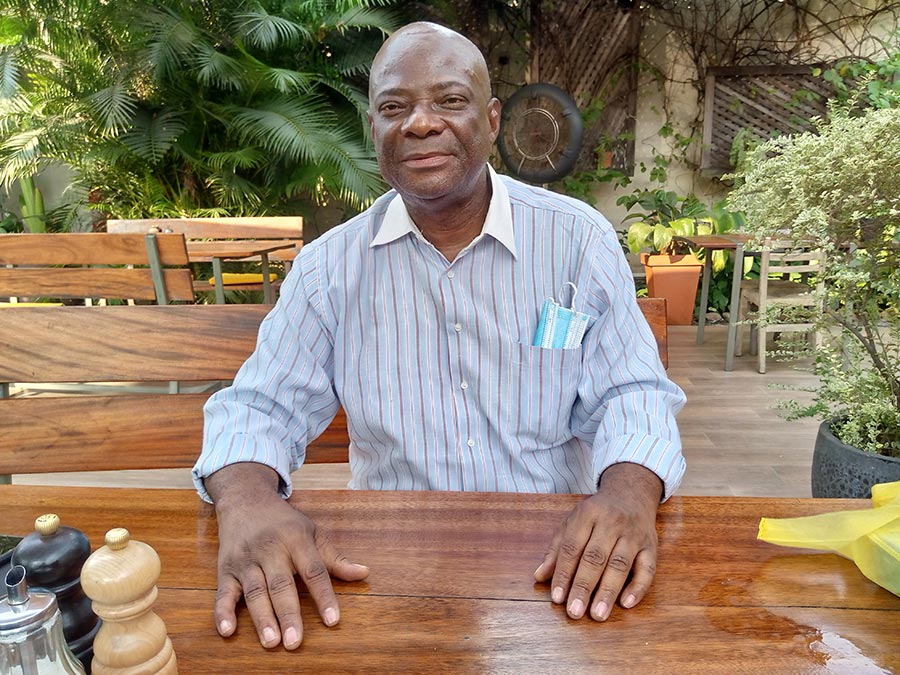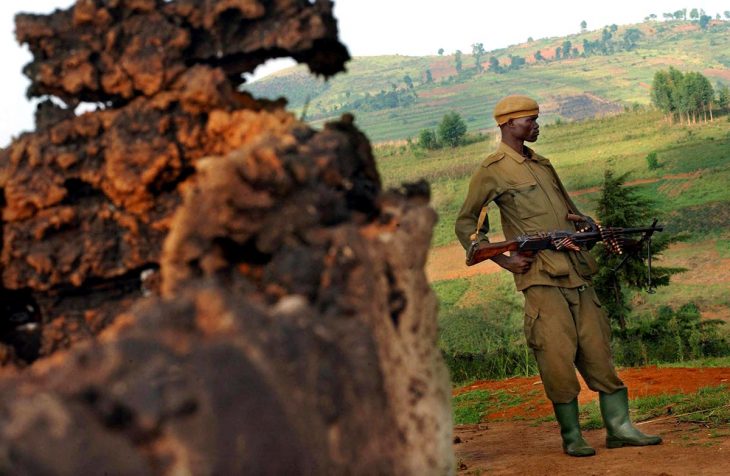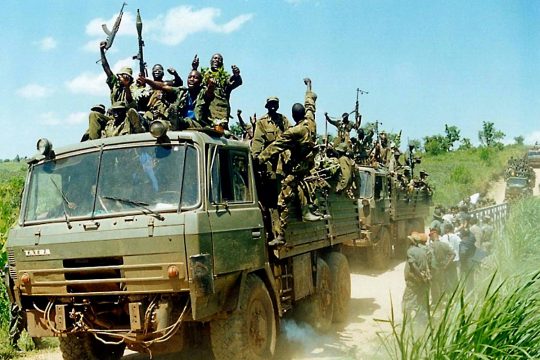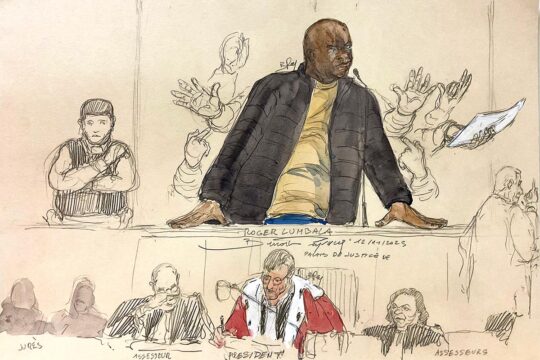This is the first instalment of the $325 million that Kampala is required to pay under the landmark ruling of the International Court of Justice (ICJ) on February 9. That is the largest amount ever awarded by an international court in compensation for serious human rights violations. The $65 million received by Kinshasa in September is to be followed over the next five years by four more similar payments.
“We have started paying and we are ready to pay the outstanding amount as agreed with DRC counterparts and no one should doubt Uganda's resolve on this matter," Ugandan Minister of Justice and Constitutional Affairs Nobert Mao told Justice Info. "Uganda values relations with all our neighbours and in the context of Pan-Africanism. True, Uganda had objected to the ruling and the reparation, but as a foresighted nation we have considered the bilateral relations with DRC above other factors and gone ahead to pay as ruled by the Court."
This quick and unexpected settlement, with Uganda having indicated it would not pay, comes seven months after the decision of the UN tribunal in The Hague. The minister explained that "we consider good relations with neighbours more than a mere cost."
A strategic decision
"The payment of the money is strategic,” says Professor Sabiiti Makara, a Ugandan political scientist and professor at Makerere Public University in Kampala. “DRC is emerging as one of Uganda's main export markets for industrial products, and this goes beyond paying a compensation. Secondly DRC has allowed Ugandan military on her soil to fight Allied Democratic Forces, which Kampala considers a terrorist group, despite resistance from the local population who reminisce about the invasion.
“Kampala is paying the reparation to strengthen the improved bilateral relations but also to smooth the way for military cooperation against ADF rebels as well as trade," says Makara in summary, adding that the timing is not by chance. “It cannot be a coincidence that all this is happening at the time when Uganda and DRC are implementing three major road networks connecting the two countries. All these are strategic interventions to boost diplomacy, security, trade and commerce."
According to the Central Bank of Uganda, Uganda's exports to the DRC reached a record high in January 2022, rising from $29.9 million to $74.3 million, an increase of 44% in one year.
Pyrrhic victory for Kinshasa
But this gesture has brought mixed reactions in Kinshasa, where it has not been forgotten that the DRC was claiming $11 billion from Uganda for damage caused, including the immense loss of human life, countless rapes, massive recruitment of child soldiers and significant population displacement.
The amount obtained by the DRC before the ICJ reflects its "weakness" in the face of powerful Uganda, says Dismas Kitenge, former vice-president of the International Federation for Human Rights (FIDH) and president of Groupe Lotus, based in Kisangani (northeast DRC). “I saw Uganda occupy the eastern regions, the whole of the former Orientale Province," he recalls. “Uganda occupied North Kivu, Equateur. The Ugandan army exploited the natural and mineral resources of the DRC, wood, cocoa and coffee. The 325 million that the ICJ has awarded us in damages is too little," says Kitenge, who notes that the exploitation of these areas could bring in at least $2 billion a year.
The president of the Lotus group is urging the authorities to consult victims on their needs for reparation, and not to repeat the mistakes of the past. Kitenge points to the experience of a recent fund. In early 2021, the then Minister of Human Rights, André Lite, announced reparations to nearly 3,000 victims of the Ugandan-Congolese war, amounting to $1.5 million, to be paid in three tranches. Only the first instalment of about $540,000 has been released, Kitenge said, and there have been reports of misappropriation at the local level and the arrest of some officials. “The local authorities, at various levels, got involved with this money so that they could benefit, so that the victims could only have a small part. We must learn from this," he says.

"The government does not inspire trust”
Civil society actors call insistently for transparency. The main point of concern for the victims is the management of Ugandan funds by a public institution that has not yet been created. The millions received from Kampala are for the moment deposited in a temporary account in the Ministry of Justice, Congolese Justice Minister Rose Mutombo told a cabinet meeting on September 9. She said this money could only be mobilized once the Special Fund for Reparation and Compensation to victims of illegal acts by Uganda in the DRC or their beneficiaries had become operational. But so far, But so far, the government has not specified when this special fund will be operational and what exactly the money will be used for.
This fuels the concern of civil society and victims. “The Congolese government does not inspire our trust, not at all, because we see how financial matters are managed at the national level,” says Jean de Dieu Kilima, the national coordinator of Ukumbusho ("Remembrance"), a popular movement working on remembrance of past violence. “There needs to be a joint commission so that this money can be traced."
Despite our inquiries, Congolese officials did not wish to provide more information.







